The France wine company JPM Owner “Jean-Pascal Noirault” Interview
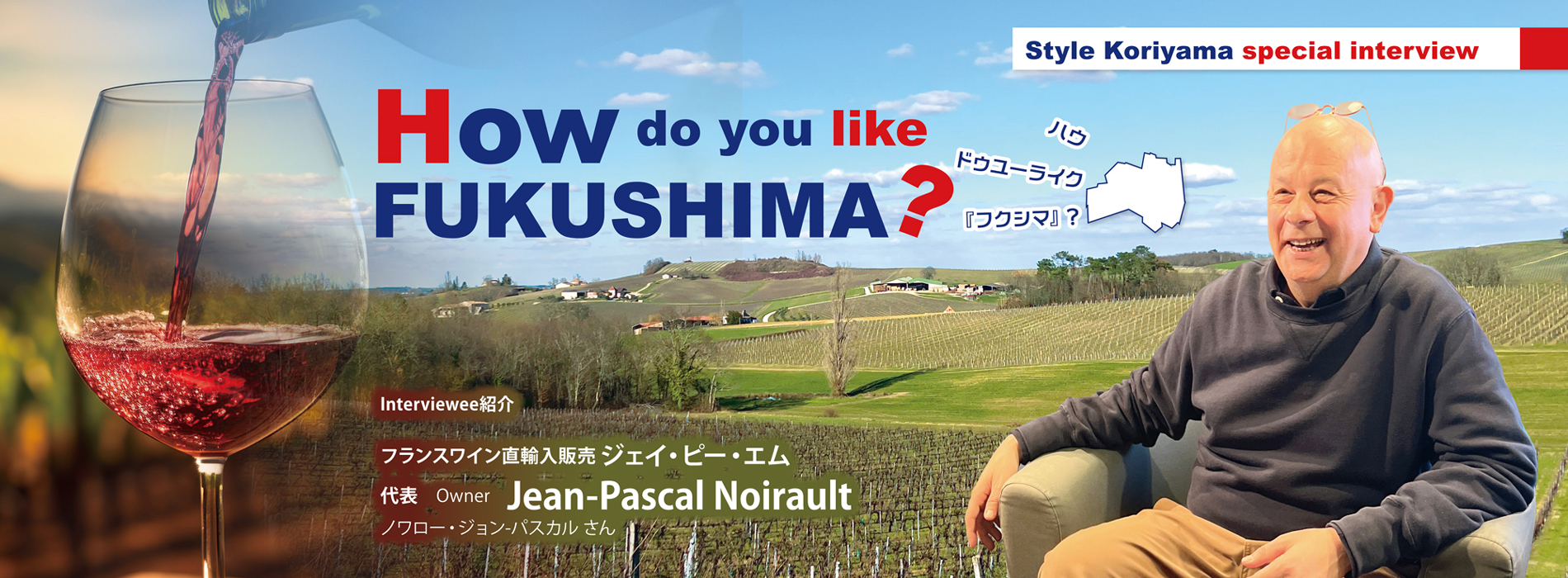
Style Koriyama special interview in English.
“How do you like FUKUSHIMA?”
I’d like to ask foreigners about Fukushima. This is a relay-style interview series.
We interviewed J.P.M. owner “Jean-Pascal Noirault”, who runs a French wine direct import sales business in Koriyama City, Fukushima Prefecture.
We asked about what brought him to Japan, how he felt about Japanese life and culture, his business, and so on.
Where are you from?
I’m from BERGERAC, which is a very little town near Bordeaux in the south of France.
↓Hometown near Bergerac, it is called Lalinde
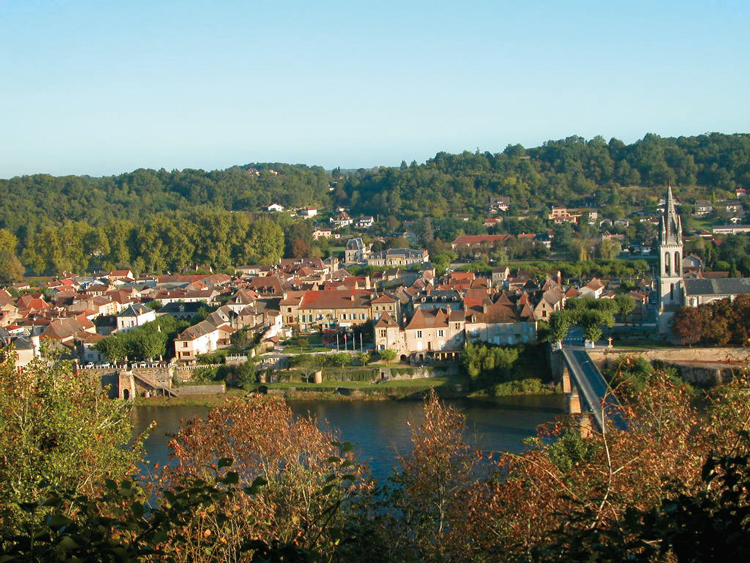
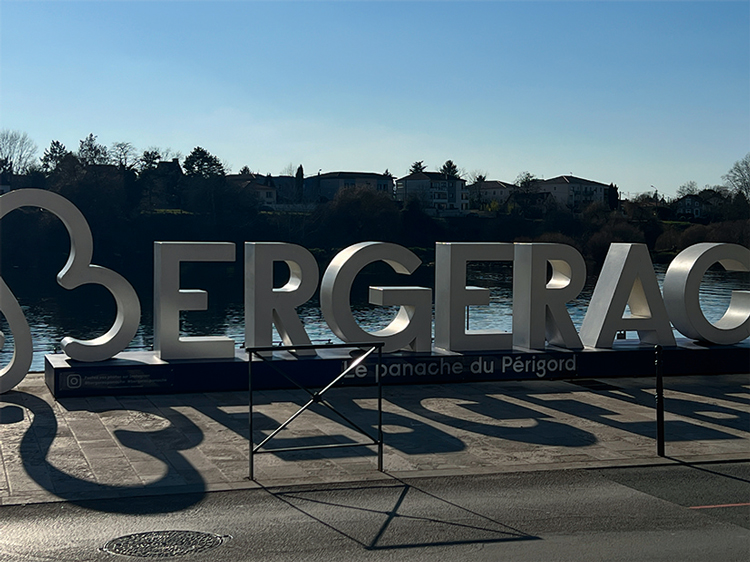
↓Savinien de Cyrano de Bergerac
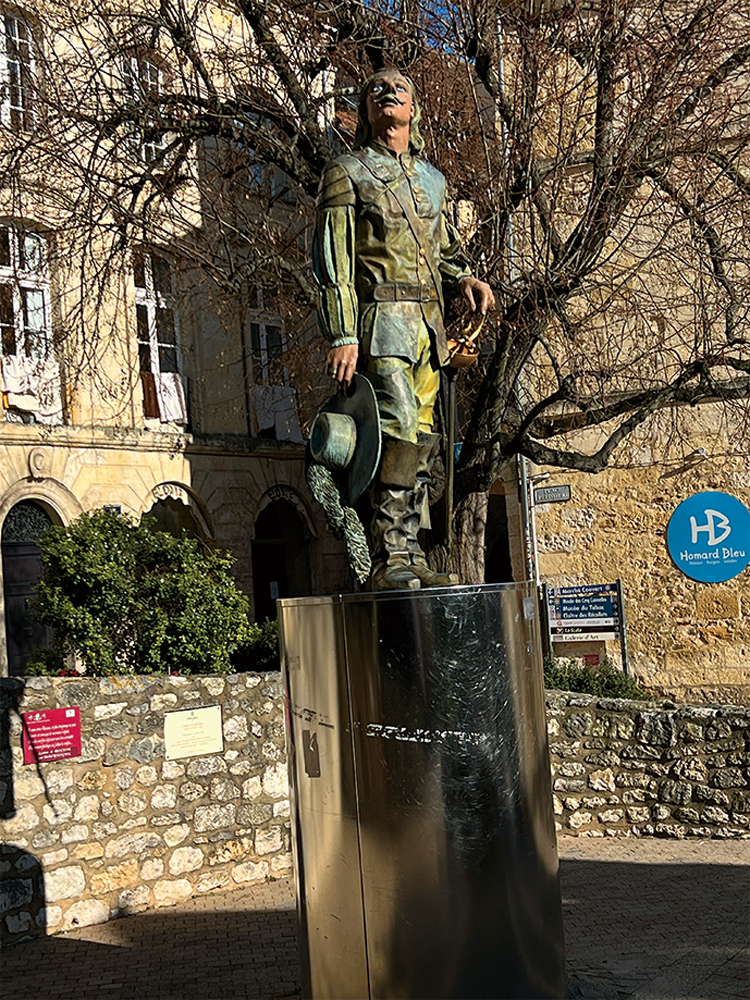
What do you do in your free time?
I read books, watch movies, walk in the morning and study wine.
My favorite books are thrillers and I watch all kinds of movies.
How about the Japanese movies?
I like “Tsuribaka-Nisshi”. That is very easy to understand. But actually I can’t fish and I don’t like it though.
Where is your favorite place in Fukushima?
Probably Sukagawa City and Inawashiro, because Sukagawa’s food is very good. Especially, yakitori of Yakitori Yoshida, and Italian food and wine of FERRAGOSTO. Those are very good. On the other hand, Inawashiro has very nice scenery. The lakes and mountains are beautiful. It’s a very nice and quiet place, and if I am stressed out by life and business, then I go to Inawashiro and I can relax.
What is your favorite Japanese food?
I like yakitori, okonomiyaki and oden. That’s my favorite food in Japan.
How about your favorite French food?
I like CONFIT DE CANARD and MAGRET DE CANARD.
CONFIT DE CANARD : It is traditional home cooking of southwestern France and it uses duck thigh meat simmered slowly with low temperature oil.
MAGRET DE CANARD:”Magret” stands for duck breast raised to obtain foie gras. It goes well with red wine, and the more you chew, the more flavor spreads throughout your mouth.
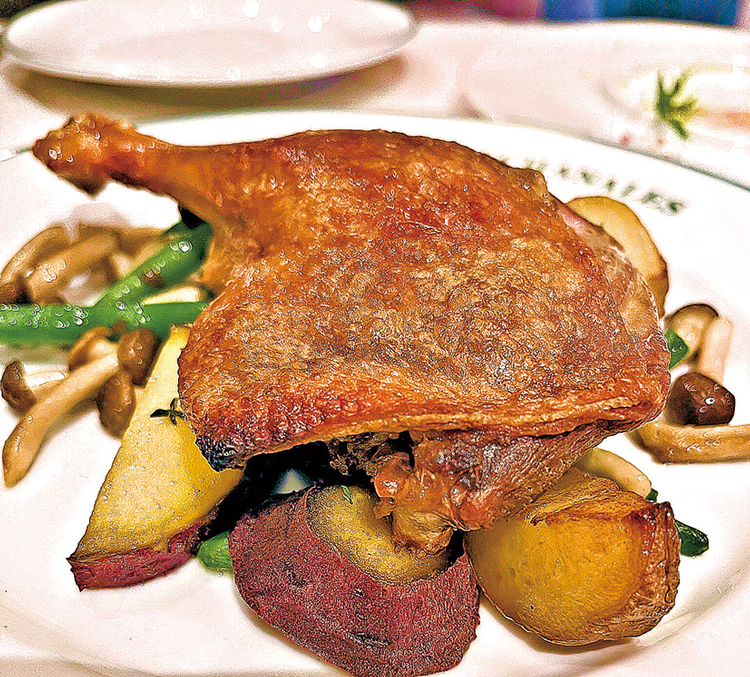
What did you do for fun as a child?
I was a tennis player, so I used to play tennis with my friends a lot when I was 15 years old. And when I was younger, I also used to play soccer.
What brought you to Japan?
I was working for an American company 30 years ago, and I was in charge of the Japanese market, so I was going back and forth between France and Japan. Then I met my wife in France and we decided to move to Japan.
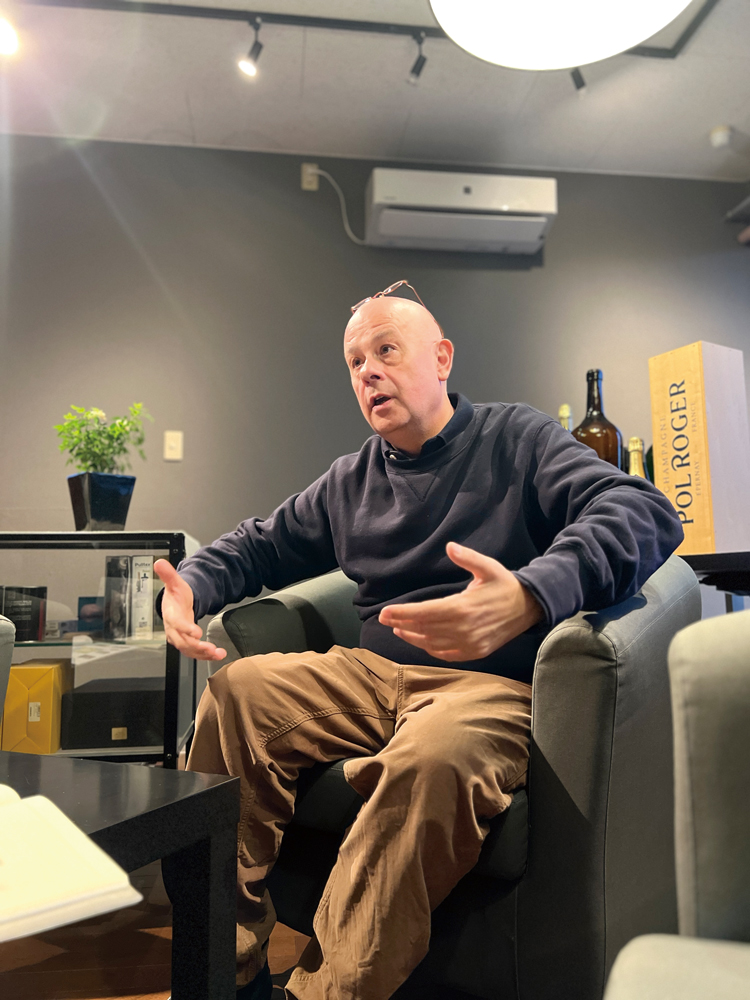
How did you and your wife meet?
We met through mutual friends. When I worked for the American company, my Japanese importer’s English was not good and my Japanese was terrible, so we needed a translator. At that time, my wife was doing translation work from French to Japanese, so we met thanks to that.
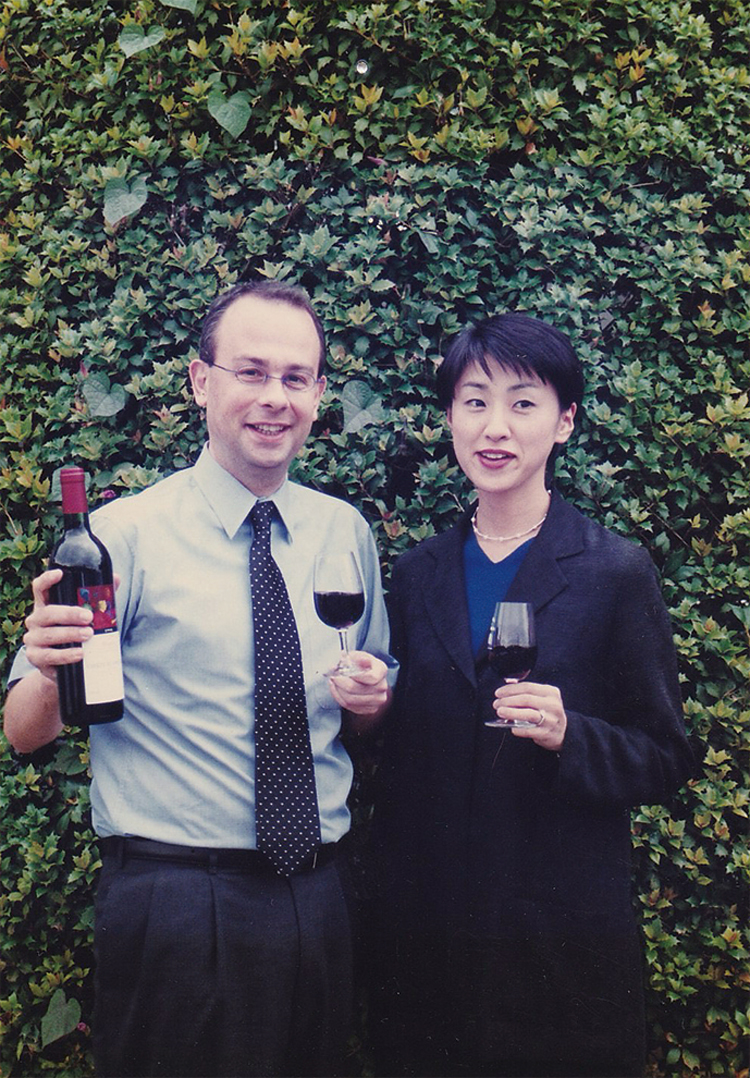
Why did you think to stay not in France but in Japan after you got married?
Because I wanted to start a new life and my own company. I thought Japan was a nice country to start business. It was a nice adventure and a good challenge. First, we moved to Tokyo. We spent 5 years in Tokyo and we decided to move to my wife’s hometown Fukushima.
Was there any opposition from your parents in France to living in Japan?
They told me that if I wanted to go to Japan, I should go because it is my life.
↓with his parents
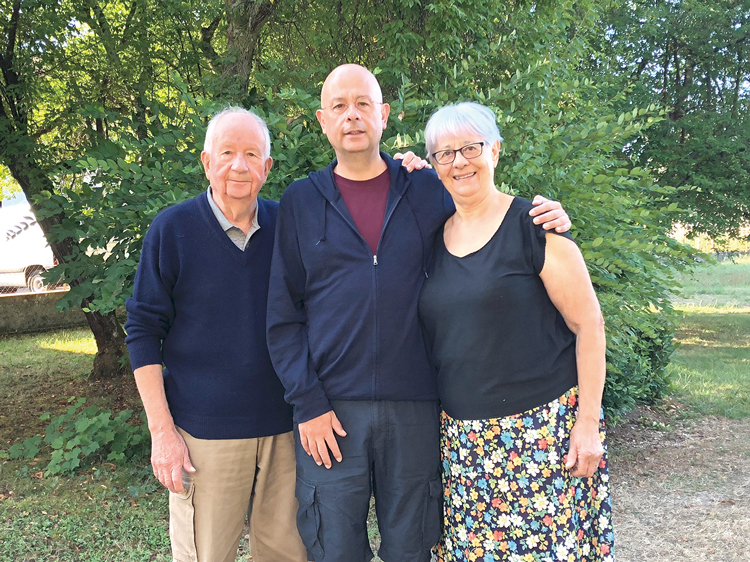
When you came to Japan for the first time, did you feel some differences between France and Japan?
Everything was different. People were different. The language was different and the scenery was different. It was a new planet for me. Specifically, people in Japan are super busy, speedy and like to work. You have to do things right away, very quickly. But French is the opposite. People have time, take time, sometimes too much time, and don’t share the same work philosophy. So that was the big difference.
Have you ever had any trouble living in Japan?
About language, when I came to Japan, I was not able to speak Japanese. So I had to learn Japanese every day. It took me five years to learn how to express myself in Japanese, so for five years it was like I had a language barrier. That was the most difficult part for me. The second point is probably the way people think. In France, we tend to say things right away, like straight. When we think something, we say it. But in Japan, people are more introverted. Even if they think it, they don’t say it. So I had to learn how to read their minds. My Japanese is still far from being perfect, but I can express most of what I want to express. I am much more comfortable now than 25 years ago. Talking with people was the most efficient way to learn Japanese.
↓with his family
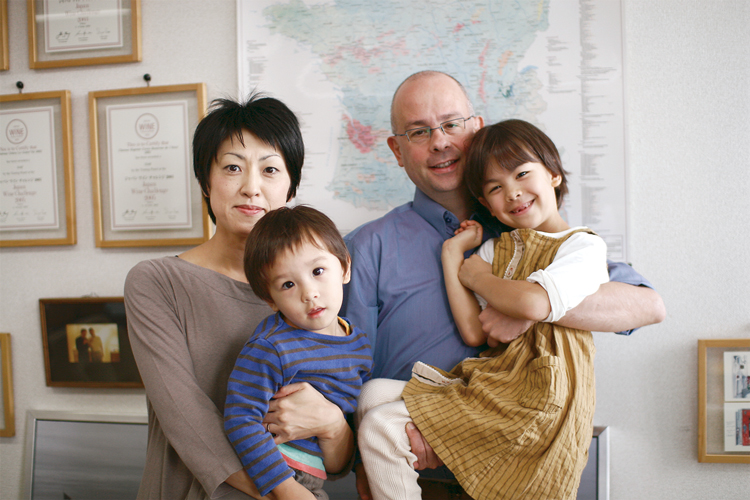
What made you start direct import sales of French wine?
Because I wanted to have my own business and be the owner of my own company. Second, when I started our business with my wife, we wanted to have some original product, and wine was the most original product we had. That’s very French. Wine is a part of French culture. If you want to be original, then you have to import directly from very small wineries, and that is the reason why. Wine from less well-known regions in France. When I came to Japan 25 years ago, the only regions Japanese consumers knew were Bordeaux and Burgundy, but France has many different regions. So I thought it was much more interesting to have the full picture, to know the various regions in France. So that’s why we attempted to import wine from small wineries outside Bordeaux and Burgundy. We imported the first wines from my home town.
↓Photo taken with the Grand Master of Confrérie Saint-Etienne in 2023
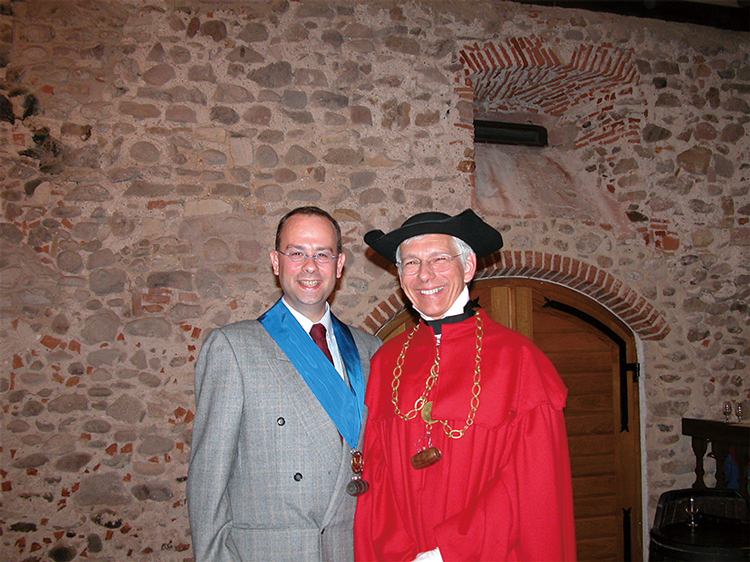
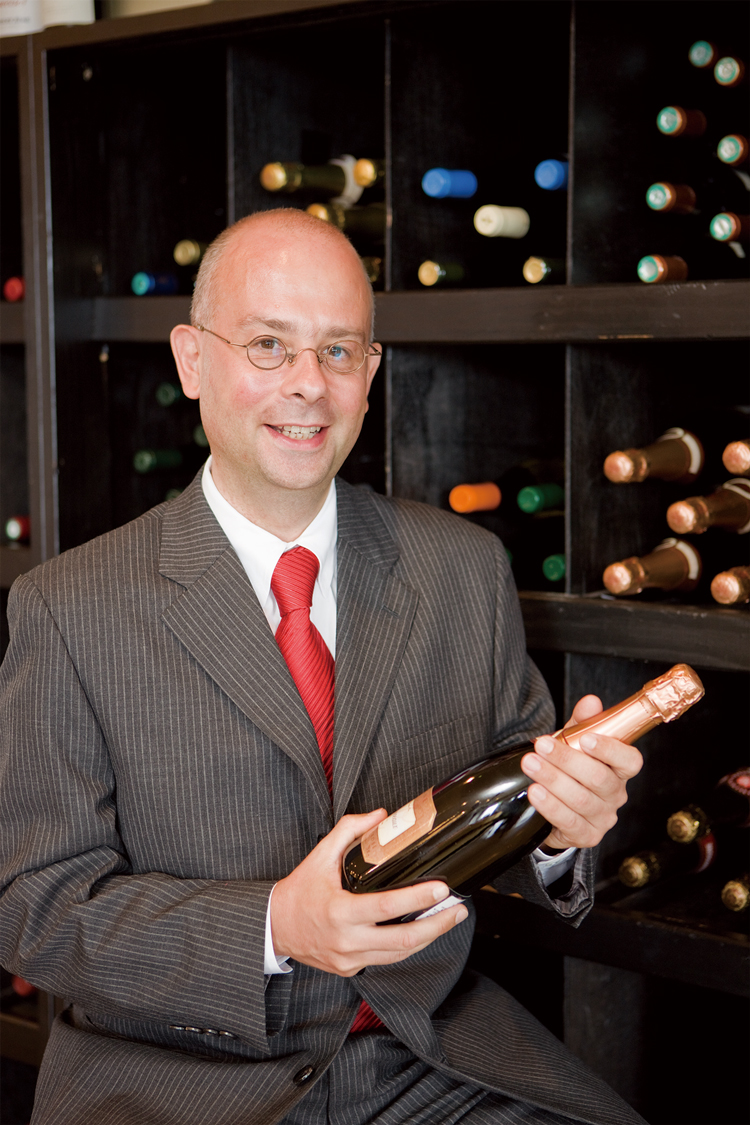
Have you had any problems with your business in Japan, and if so, how did you overcome them?
When you own a business, you have problems every day. Ok, let’s talk about selling. The way you sell in Japan and France is very different. In Japan you have to be very careful. You have to take care of the customer all the time if you want to sell. France is not like this. In Japan, the customer is king, so I had to learn how to take care of my customers. I am still learning but it was good experience for me. In France, of course you have to take care of the customer, but not in the same way. You don’t have to pay that much attention to the customer. Here in Japan, you have to be on the customer every day and minute. Just make sure if you want to sell wine, you have to call the customer, visit the customer. If they don’t order wine, you have to call again, visit again, come up with new offers. The process in France is less rigorous. We do not do that in the same way.
How often do you go to France?
Before covid-19, twice a year. But I wasn’t able to go back for 4 years. I went back to France for the first time in 4 years last year in February. So now it’s more like once or twice a year for the moment.
What would you like to do in the future?
I want to expand and grow my business. I want to import wine more from small wineries, very specific wines and maybe I’m going to try to import wine from other countries like Australia or New Zealand. But for now, I am focusing on French wine.
How large is the sales area?
We mainly sell and ship by wholesale in Japan. Most customers are professionals, such as restaurants, hotels, inns, bars and so on. However, non-professionals can also purchase from the website.
Finally, could you give the Style Koriyama readers a message?
Wine is not a difficult drink. It’s a social drink. It’s a beverage you can share with friends, and it pairs well with food. You have to drink wine to learn wine. You don’t have to open books first and then drink wine. Drink first and then study. That’s my motto. Wine is not a difficult beverage, but you have to try and try as many bottles as you can with friends, and talk about it, share your experience with friends. That is very interesting. When you start to talk about wine, even if you come from different countries, everybody speaks the same language. When you talk about wine, everybody is like talking about wine, the aromas, structure, tannin, acidity. It’s very interesting. When I do tasting with friends, like a professional tasting with people from very different countries in the world, we sit at the same table and somebody opens the different bottles and we start to taste. Suddenly, it’s like we are one group of people, because we share the same passion for wine, so that’s what I want to share with your readers. Wine is not only a drink. It’s about culture and a lot of things, and the more you share, the more you want to learn about wine.
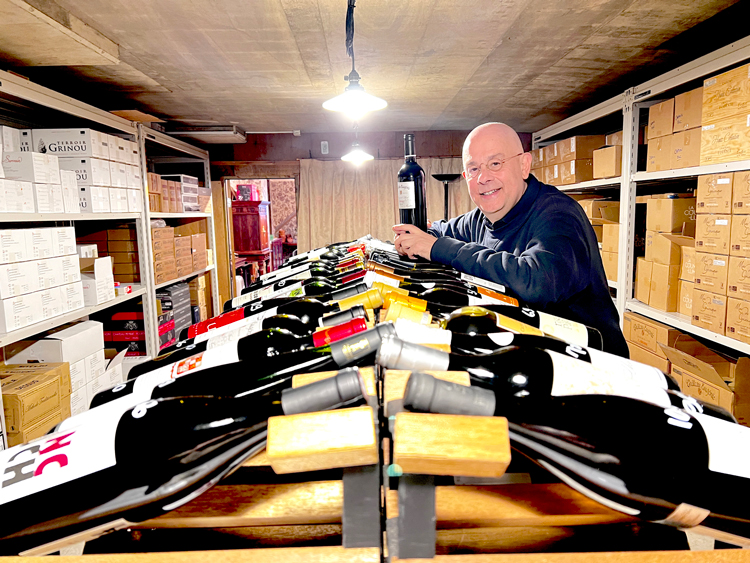
What is “WSET” ?
WSET stands for Wine & Spirit Education Trust. It is an educational institution of alcohol and has its headquarters in London, Britain. It is a global organization which arranges courses and exams in the field of wine, spirits and sake and is regarded as one of the world’s leading providers of wine education for professionals and wine aficionados/connoisseurs. Not only people involved in alcohol distribution around the world, but also a lot of industry professionals and general wine lovers take the international examination.
Biography
JEAN-PASCAL NOIRAULT
BIRTHPLACE: POITIERS (79)
DATE OF BIRTH: 26 MAY 1969
HOMETOWN: BERGERAC (24)
GRADUATED FROM INSEEC BUSINESS SCHOOL – 4 YEARS
(MAJOR IN INTERNATIONAL TRADE AND MARKETING) (1993)
Qualifications and recent achievements
WSET DIPLOMA IN WINE & SPIRITS (2019)
WSG BURGUNDY MASTER LEVEL (2021)
PANEL JUDGE – JAPAN & SOUTH KOREA
JPM The Wine Company
French wine specialty store in Koriyama City, Fukushima Prefecture
Phone: 024-922-5957
Adress: 3-41 Yatsuyamadanishi, Koriyama City, Fukushima Prefecture
